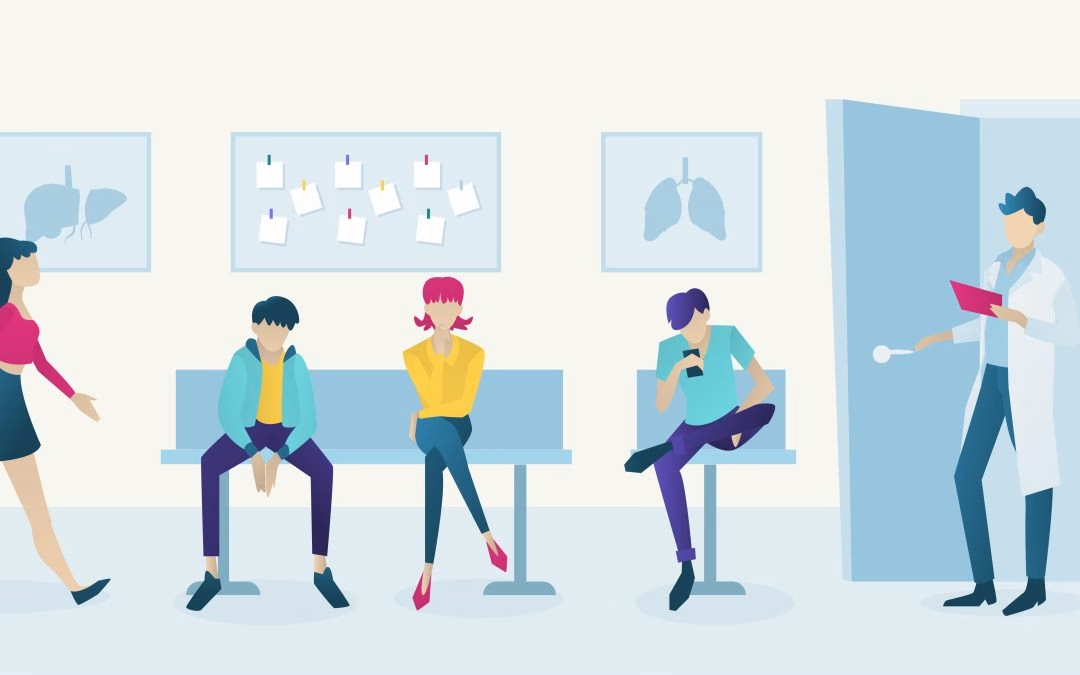by | Apr 28, 2024 | Walk In Clinic

What Is Norovirus?
Picture this: you’re excitedly preparing for a big work event, only to receive an urgent call from your child’s school. A sudden outbreak of norovirus has hit, and several children, including yours, are showing symptoms. Panic sets in as you rush to pick them up, armed with hand sanitizer and a deep sense of dread. But what exactly is norovirus, and why does it cause such widespread concern?
Norovirus is a highly contagious virus that leads to gastroenteritis, which is the inflammation of the stomach and intestines. Despite often being mislabeled as the “stomach flu,” it has no relation to influenza, a respiratory virus. Instead, norovirus is notorious for causing severe gastrointestinal distress and is a leading cause of foodborne illness in the United States. According to the CDC, it results in over 70,000 hospitalizations and approximately 800 deaths annually, predominantly affecting the elderly and young children.
How Norovirus Spreads
Norovirus spreads with alarming ease and can be contracted through various means:
- Direct Contact: Touching an infected person or sharing utensils and personal items.
- Contaminated Food and Water: Raw or undercooked shellfish and inadequately washed produce are common culprits.
- Contaminated Surfaces: The virus can survive on surfaces like countertops and doorknobs for weeks, making it easy to pick up through casual contact.
- Public places such as schools, daycare centers, nursing homes, and cruise ships are particularly vulnerable to outbreaks due to the close quarters and high levels of interaction.
Recognizing Norovirus Symptoms
The symptoms of norovirus are often intense and can appear suddenly within 12 to 48 hours after exposure. These include:
- Nausea and Vomiting: Often severe and persistent.
- Diarrhea and Stomach Cramps: Continuous and debilitating.
- Distinguishing norovirus from other illnesses like the flu can be challenging due to overlapping symptoms, but the rapid onset and gastrointestinal focus are telltale signs. Only a lab test can definitively diagnose norovirus.
How to Protect Yourself from Norovirus
Hand Hygiene
Thorough handwashing with soap and water for at least 20 seconds is your best defense. Hand sanitizers are ineffective against norovirus, so it’s crucial to wash your hands:
- Before eating and handling food.
- After using the restroom.
- After changing diapers.
Surface Disinfection
To disinfect surfaces, use a bleach solution (3/4 cup of bleach per gallon of water) and let it sit for five minutes before wiping it down. For alternatives to bleach, consult the EPA’s list of effective antimicrobial products.
Isolation
If you or a family member contracts norovirus, stay home to prevent spreading it to others. Avoid preparing food for at least three days after symptoms cease.
Managing Norovirus and Its Complications
Dehydration is a serious risk, especially for young children, the elderly, and those with weakened immune systems. Watch for symptoms such as:
- Decreased Urination and Dark Urine
- Dry Mouth and Throat
- Dizziness and Weakness
- Headaches
- Children may also exhibit signs of fussiness, tearless crying, and excessive grogginess.
Because of the vomiting and diarrhea caused by norovirus, maintaining hydration is critical. Sipping water and electrolyte solutions like Pedialyte or Gatorade, and eating small, manageable amounts of food can help.
When to Seek Medical Help
Immediate medical attention is necessary if you experience:
- A fever over 102°F (38.9°C)
- Extreme drowsiness or confusion
- Severe dehydration symptoms
- No improvement after 48 hours
Norovirus, though highly contagious and unpleasant, can be managed and prevented with proper hygiene and food safety practices. Understanding what norovirus is and how it spreads empowers you to protect yourself and your loved ones. As you navigate through daily life, especially in peak norovirus season, diligent handwashing and careful food handling are your best defenses against this pervasive virus. Stay informed, stay cautious, and keep norovirus at bay.


